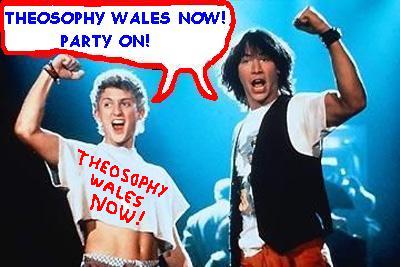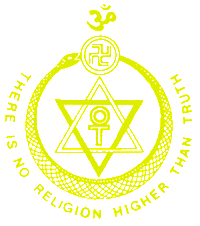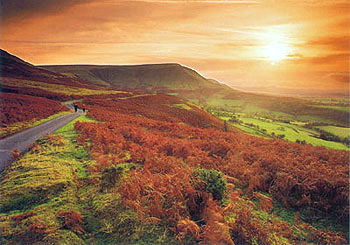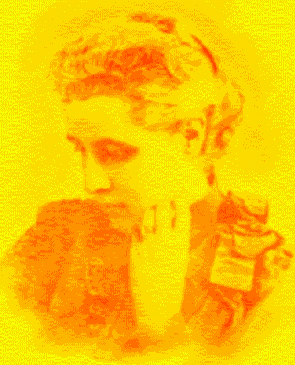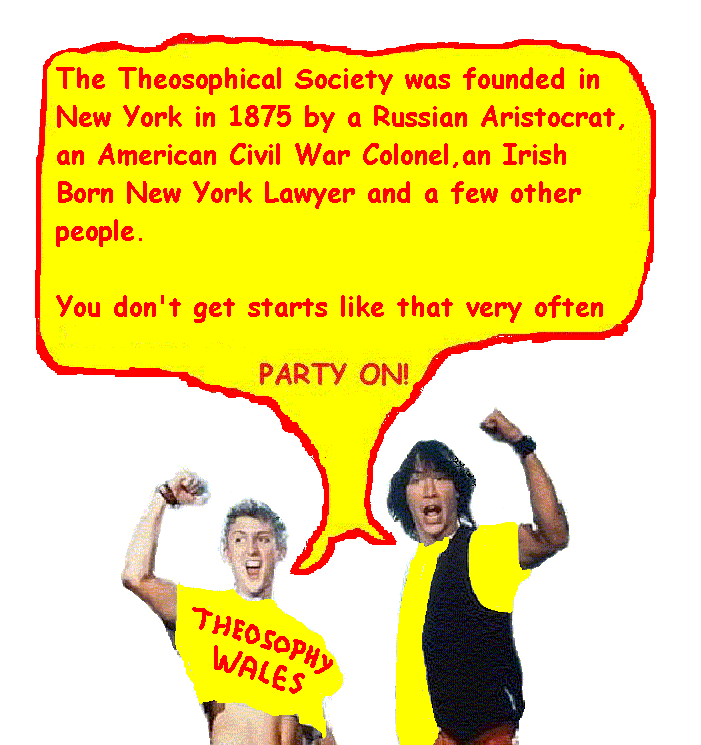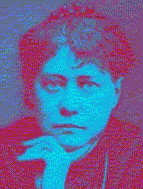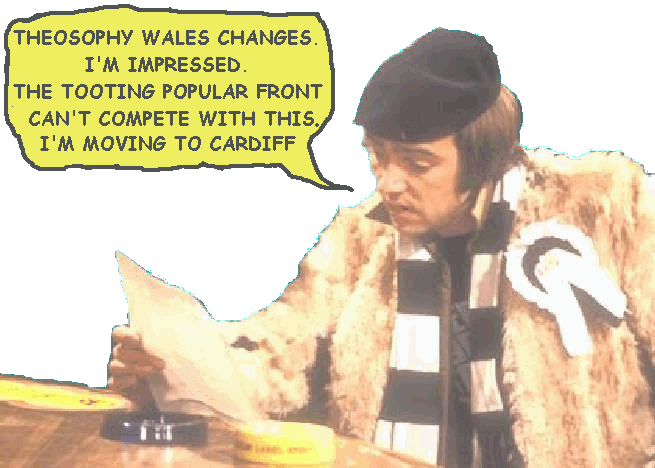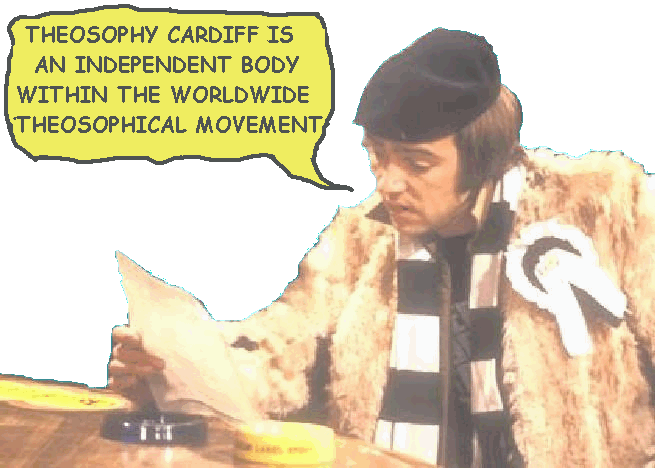NOW!
THE THEOSOPHY WALES WEBSITE
THAT JUST WON’T WAIT
Bangor, Cardiff,
Conwy & Swansea
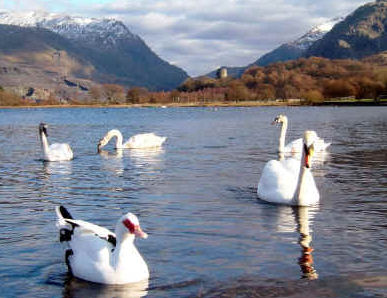
Swans at Llyn Padarn,
Snowdonia,
Theosophy Wales
has no controlling body
and is made up of
independent groups
Sunset over Gospel Pass in the black
Mountains
in South East Wales near the border with
Herefordshire, England.
_________________
The Seven Principles of Man
By
Annie Besant
Principle V.
Manas, The
Thinker, or Mind
We have reached the most complicated part of our study, and some thought
and attention are necessary from the reader to gain even an elementary idea of
the relation held by the fifth principle to the other principles in man.
The word Manas comes from the Sanskrit word – man, the root of the verb
to think ; it is the Thinker in us, spoken of vaguely in the West as mind. I
will ask the reader to regard Manas as Thinker rather than as mind, because the
word Thinker suggests some one who thinks, i.e., an individual, an entity. And
this is
exactly the Theosophical idea of Manas, for Manas is the immortal
individual, the real " I ," that clothes itself over and over again
in transient personalities, and itself endures for ever.
It is described in the Voice of the Silence in the exhortation addressed
to the candidate for initiation: "Have perseverance as one who doth for
evermore endure. Thy shadows [personalities] live and vanish ; that which in
thee shall live for ever, that which in thee knows, for it is knowledge, is not
of fleeting life; it is the man that was, that is, and will be, for whom the
hour shall never strike" (p. 31). H.P.Blavatsky has described it very
clearly in the Key to Theosophy: "Try to imagine a ‘Spirit,’ a celestial
being, whether we call it by one name or another, divine in its essential
nature, yet not pure enough to be one with the ALL, and having, in order to
achieve this, to so purify its nature as finally to gain that goal.
It can do so only be passing individually and personally, i.e., spiritually
and physically, through every experience and feeling that exists in the
manifold or differentiated universe. It has, therefore, after having gained
such experience in the lower kingdoms, and having ascended higher and still
higher with every rung on the ladder of being, to pass through every experience
on the human planes.
In its very essence it is Thought, and is, therefore, called in its
plurality Manasaputra, ‘the Sons of (universal) Mind.’ This individualised
‘Thought’ is what we Theosophists call the real human Ego, the thinking entity
imprisoned in a case of flesh and bones. This is surely a spiritual entity, not
matter (that is, not matter as we know it, on the plane of the objective
universe) – and such entities are the incarnating Egos that inform the bundle
of animal matter called mankind, and whose names are Manasa or minds" (Key
to Theosophy, p. 183-184).
This idea may be rendered yet clearer perhaps by a hurried glance cast
backward over man’s evolution in the past. When the quaternary had been slowly
built up, it was a fair house without a tenant, and stood empty awaiting the
coming of the one who was to dwell therein.
The name Mânasaputra (the sons of mind) covers many grades of
intelligence, ranging from the mighty "Sons of the Flame" whose human
evolution lies far behind them, down to those entities who gained
individualisation in the cycle preceding our own, and were ready to incarnate
on this earth in order to accomplish their human stage of evolution.
Some superhuman intelligences incarnated as guides and teachers of our
infant humanity, and became founders and divine rulers of the ancient
civilisations.
Large numbers of the entities spoken of above, who had already evolved
some mental faculties, took up their abode in the human quaternary, in the
mindless men. These are the reincarnating Mânasaputra, who became the tenants
of the human frames as then evolved on earth, and these same Mânasaputra,
reincarnating age after age, are the Reincarnating Egos, the Manas in us, the
persistent individual, the fifth principle in man.
The remainder of mankind through successive ages received from the
loftier Mânasaputra their first spark of mind, a ray which stimulated into
growth the germ of mind latent within them, the human soul thus having its
birth in time there. It is these differences of age, as we may call them, in
the beginning of the individual life, of the specialisation of the eternal
Divine Spirit into a human soul, which explain the enormous differences in
mental capacity found in our present humanity.
The multiplicity of names given to this fifth principle has probably
tended to increase the confusion surrounding it in the minds of many who are
beginning to study Theosophy.
Mânasaputra is what we call the historical name, the name that suggests
the entrance into humanity of a class of already individualised souls at a
certain point of evolution ; Manas is the ordinary name, descriptive of the
intellectual nature of the principle ; the Individual or the " I ,"
or Ego, recalls the fact that this principle is permanent, does not die, is the
individualising principle, separating itself in thought from all that is not
itself, the Subject in Western terminology as opposed to the Object ; the
Higher Ego puts it into contrast with the Personal Ego, of which something is
to be presently said.
The Reincarnating Ego lays stress on the fact that it is the principle
that reincarnates continually, and so unites in its own experience all the
lives passed through on earth. There are various other names, but they will not
be met with in elementary treatises.
The above are those most often encountered, and there is no real
difficulty about them, but when they are used interchangeably, without
explanation, the unhappy student is apt to tear his hair in anguish, wondering
how many principles he has got hold of, and what relation they bear to each
other.
We must now consider Manas during a single incarnation, which will serve
as the type of all, and we will start when the Ego has been drawn – by causes
set a-going in previous earth-lives – the family in which is to be born the
human being who is to serve as its next tabernacle. (I do not deal here with
reincarnation, since that great and most essential doctrine of Theosophy must be
expounded separately).
The Thinker, then, awaits the building of the "house of life"
which he is to occupy ; and now arises a difficulty ; himself a spiritual
entity living on the mental or third plane upwards, a plane far higher than
that of the universe, he cannot influence the molecules of gross matter of
which his dwelling is built by the direct play upon them of his own most subtle
particles.
So, he projects part of his own substance, which clothes itself with
astral matter, and then with the help of etheric matter permeates the whole
nervous system of the yet unborn child, to form, as the physical apparatus
matures, the thinking principle in man. This projection from Manas, spoken of
as its reflection, its shadow, its ray, and by many another descriptive and
allegorical name, is the lower Manas, in contradistinction to the higher Manas
– Manas, during every period of incarnation, being dual.
On this, H.P.Blavatsky says: "Once imprisoned, or incarnate, their
(the Manas) essence becomes dual; that is to say the rays of the eternal divine
Mind, considered as individual entities, assume a twofold attribute which is
(a) their essential, inherent, characteristic, heaven-aspiring mind
(higher Manas), and
(b) the human quality of thinking, or animal cogitation, rationalised
owing to the superiority of the human brain, the Kâma-tending or lower
Manas" (Key to Theosophy, p. 184).
We must now turn our attention to this lower Manas alone, and see the
part which it plays in the human constitution.
It is engulfed in the quaternary, and we may regard it as clasping Kâma
with one hand, while with the other it retains its hold on its father, the
higher Manas.
Whether it will be dragged down by Kâma altogether and be torn away from
the triad to which by its nature it belongs, or whether it will triumphantly
carry back to its source the purified experiences of its earth-life – that is
the life-problem set and solved in each successive incarnation.
During earth-life, Kâma and the lower Manas are joined together, and are
often spoken of conveniently as Kâma-Manas. Kâma supplies, as we have seen, the
animal and passional elements ; the lower Manas rationalises these, and adds
the intellectual faculties ; and so we have the brain-mind, the
brain-intelligence, i.e.., Kâma-Manas functioning in the brain and nervous
system, using the physical apparatus as its organ on the material plane.
In man these two principles are interwoven during life, and rarely act
separately, but the student must realise that "Kâma-Manas " is not a
new principle, but the interweaving of the fourth with the lower part of the
fifth.
As with a flame we may light a wick, and the colour of the flame of the
burning wick will depend on the nature of the wick and of the liquid in which
it is soaked, so in each human being the flame of Manas set alight the brain
and Kâmic wick, and the colour of the light from that wick will depend on the
Kâmic nature and the development of the brain-apparatus.
If the Kâmic nature be strong and undisciplined it will soil the pure
manasic light, lending it a lurid tinge and fouling it with noisome smoke. If
the brain-apparatus be imperfect or undeveloped, it will dull the light and
prevent it from shining forth to the outer world.
As was clearly stated by H.P.Blavatsky in her article on
"Genius" ; "What we call ‘the manifestations of genius’ in a
person are only the more or less successful efforts of that Ego to assert
itself on the outward plane of its objective form – the man of clay – in the matter-of-fact
daily life of the latter.
The Egos of a Newton, an Ćschylus, or a Shakespeare are of the same
essence and substance as the Egos of a yokel, an ignoramus, a fool, or even an
idiot ; and the self-assertion of their informing genii depends on the physiological
and
material construction of the physical man. No Ego differs from another
Ego in its primordial or original essence and nature.
That which makes one mortal a great man and of another a vulgar silly
person is, as said, the quality and make-up of the physical shell or casing,
and the adequacy or inadequacy of brain and body to transmit and give
expression to the light of the real inner man ; and this aptness or inaptness
is, in its turn, the result of Karma.
Or, to use another simile, physical man is the musical instrument, and
the Ego the performing artist. The potentiality of perfect melody of sound is
in the former – the instrument – and no skill of the latter can awaken a
faultless harmony out of a broken or badly made instrument.
This harmony depends on the fidelity of transmission, by word and act,
to the objective plane, of the unspoken divine thought in the very depths of
man’s subjective or inner nature. Physical man may – to follow our simile – be
a priceless Stradivarius, or a cheap and cracked fiddle, or again a mediocrity
between the two, in the hands of the Paganini who ensouls him" (Lucifer
November, 1889, p.228).
Bearing in mind these limitations and idiosyncrasies ([Limitations and
idiosyncrasies due to the action of the Ego in previous earth-lives, be it
remembered ] imposed on the manifestations of the thinking principle by the
organ through which it has to function, we shall have little difficulty in
following the workings of the lower Manas in man ; mental ability, intellectual
strength, acuteness, subtlety – all these are its manifestations ; these may
reach as far as what is often called genius, what H.P. Blavatsky speaks of as
"artificial genius, the outcome of culture and of purely intellectual
acuteness." Its nature is often demonstrated by the presence of Kâmic
elements in it, of passion, vanity and arrogance.
The higher Manas can but rarely manifest itself at the present stage of
human evolution. Occasionally a flash from those loftier regions lightens the
twilight in which we dwell, and such flashes alone are what the Theosophist
calls true genius ; "Behold in every manifestation of genius, when
combined with virtue, the undeniable presence of the celestial exile, the
divine Ego whose jailer thou art, O man of matter."
For theosophy teaches "that the presence in man of various creative
powers" – called genius in their collectivity – is due to no blind chance,
to no innate qualities through hereditary tendencies – though that which is
known as atavism may often intensify these faculties – but to an accumulation
of individual antecedent experiences of the Ego in its preceding life and
lives.
For, omniscient in its essence and nature, it still requires experience,
through its personalities, of the things of earth, earthly on the objective
plane, in order to apply the fruition of that abstract experience to them. And,
adds our philosophy, the cultivation of certain aptitudes through out a long
series of past incarnations must finally culminate, in some one life, in a
blooming forth as genius, in one or another direction" – ( Lucifer
November, 1889, p. 229-30). For the manifestation of true genius, purity of
life is an essential condition.
Kâma-Manas is the personal self of man ; we have already seen that the
quaternary, as a whole, is the personality, "the shadow," and the
lower Manas gives the individualising touch that makes the personality
recognise itself as " I ". It becomes intellectual, it recognises
itself as separate from all other selves ; deluded by the separateness it
feels, it does not realise a unity beyond all that it is able to sense.
And the lower Manas, attracted by the vividness of the material-life
impressions, swayed by the rush of the Kâmic emotions, passions and desires,
attracted to all material things blinded and deafened by the storm voices among
which it is plunged – the lower Manas is apt to forget the pure and serene
glory of its birthplace, and to throw itself into the turbulence which gives
rapture in lieu of peace.
And, be it remembered, it is this very lower Manas that yields the last
touch of delight to the senses and to the animal nature ; for what is passion
that can neither anticipate nor remember, where is ecstasy without the subtle
force of imagination, the delicate colours of fancy and of dream?
But there may be chains yet more strong and constraining, binding the
lower Manas fast to the earth. They are forged of ambition, of desire for fame,
be it for that of the statesman’s power, or of supreme intellectual
achievement. So long as any work is wrought for sake of love, or praise, or
even recognition that the work is "mine" and not another’s ; so long
as in the heart’s remotest chambers one subtlest yearning remains to be
recognised as separate from all ; so long, however grand the ambition, however
far reaching the charity, however lofty the achievement, Manas is tainted with
Kâma, and is not pure as its source.
____________________________
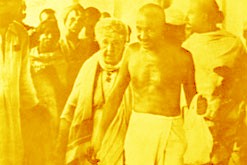
Annie Besant with Mahatma Gandhi
___________________________
_____________________________
Find
out more about
with
these links
Cardiff
Theosophical Society meetings are informal
and there’s always
a cup of tea afterwards
The Cardiff Theosophical Society Website

Newtown,
Powys, Mid
The National
Wales Theosophy Website
Bangor, Cardiff, Conwy & Swansea
Theosophy Wales Youtube Channel
Ten Benefits of Studying the Blavatskyan
Theosophical Teachings
Studying
the Blavatskyan Theosophical teachings offers numerous benefits that can
greatly enrich one's understanding of spirituality, philosophy, and the nature
of reality. Theosophy, as defined by the
writings of Helena Petrovna Blavatsky, has had a profound impact on the
spiritual and philosophical landscape of the modern world. Blavatsky's
teachings draw from a wide range of religious and philosophical traditions,
including Hinduism, Buddhism, and Western esotericism, and present a
comprehensive worldview that addresses fundamental questions about existence,
consciousness, and the cosmos.
Here
are ten benefits of studying the Blavatskyan Theosophical Teachings
1.
Exploration of Esoteric Wisdom
One
of the primary benefits of studying the Blavatskyan Theosophical teachings is
the opportunity to explore esoteric wisdom that is often not readily accessible
in mainstream religious or philosophical traditions. Blavatsky's writings delve
into the esoteric teachings of ancient cultures and mystery schools, shedding
light on profound spiritual truths that have been passed down through the ages.
By delving into these esoteric teachings, students of Theosophy can gain
insights into the nature of consciousness, the structure of the cosmos, and the
evolution of the soul or immortal self.
2.
Synthesis of Eastern and Western Philosophy
Blavatsky's
Theosophical teachings synthesize elements of Eastern and Western philosophy,
offering a comprehensive framework that integrates concepts from diverse
cultural and religious traditions. This synthesis provides students with a
broader perspective on philosophical and spiritual thought, allowing them to
see the underlying unity of seemingly disparate belief systems. By studying
Theosophy, individuals can gain a deeper appreciation for the universal
principles that underlie all wisdom traditions, fostering a sense of unity and
interconnectedness with the world's spiritual heritage.
3.
Understanding of Universal Brotherhood
Central
to Blavatsky's Theosophical teachings is the principle of universal
brotherhood, which emphasizes the essential unity of all beings and the
interconnectedness of life. By studying Theosophy, individuals can develop a
profound understanding of the interconnected nature of existence, recognizing
that all living beings are fundamentally linked and that compassion and empathy
are essential for the evolution of humanity. This understanding can lead to a
greater sense of empathy, kindness, and social responsibility, fostering a more
harmonious and compassionate society.
4.
Insight into the Nature of Reality
The
Blavatskyan Theosophical teachings offer profound insights into the nature of
reality, consciousness, and the unseen dimensions of existence. Through the
study of Theosophy, individuals can explore concepts such as the
multi-dimensional nature of the universe, the existence of subtle energy
realms, and the interconnectedness of the material and spiritual planes. This
exploration can lead to a deeper understanding of the nature of reality beyond
the limitations of the physical senses, opening up new vistas of perception and
understanding.
5.
Personal Spiritual Growth
Studying
the Theosophical teachings can be a transformative journey that facilitates
personal spiritual growth and self-discovery. Blavatsky's writings offer
practical guidance for inner development, including meditation practices,
ethical principles, and the cultivation of spiritual virtues. By applying these
teachings to their lives, individuals can experience profound personal
transformation, leading to greater self-awareness, inner peace, and a sense of
purpose and meaning.
6.
Ethical and Moral Guidance
The
Theosophical teachings provide a comprehensive ethical and moral framework that
can guide individuals in their personal and social interactions. Blavatsky
emphasizes the importance of ethical conduct, altruism, and the pursuit of
wisdom, offering practical guidance for leading a virtuous and meaningful life.
By studying Theosophy, individuals can gain clarity on moral issues, cultivate
a sense of ethical responsibility, and contribute to the greater good of
humanity.
7.
Appreciation of Comparative Religion
The
study of Theosophy encourages an appreciation of comparative religion and the
underlying unity of religious and spiritual traditions. Blavatsky's writings
explore the common threads that run through the world's religions, highlighting
universal spiritual principles that transcend cultural and historical
boundaries. By gaining a deeper understanding of comparative religion through
Theosophy, individuals can develop a more inclusive and pluralistic
perspective, fostering interfaith harmony and mutual respect.
8.
Intellectual Stimulation
The
Theosophical teachings offer a rich and intellectually stimulating framework
for exploring profound philosophical and metaphysical concepts. Blavatsky's
writings encompass a wide range of subjects, including cosmology, metaphysics,
ancient wisdom, and the evolution of consciousness, providing ample material
for intellectual inquiry and contemplation. By engaging with these teachings,
individuals can expand their intellectual horizons, develop critical thinking
skills, and gain a deeper understanding of the fundamental questions that have
intrigued philosophers and mystics throughout history.
9.
Healing and Reconciliation
The
Theosophical teachings offer insights into the nature of healing and
reconciliation, both on a personal and collective level. Blavatsky's writings
delve into the esoteric principles of healing, the nature of disease, and the
interconnectedness of mind, body, and spirit. By studying Theosophy,
individuals can gain a deeper understanding of holistic healing modalities, the
power of the mind in influencing health, and the potential for spiritual
transformation through the healing process. Furthermore, the Theosophical
emphasis on universal brotherhood and compassion can contribute to the
reconciliation of divisions and conflicts within society, fostering a more
harmonious and peaceful world.
10.
Contribution to Global Transformation
Finally,
studying the Blavatskyan Theosophical teachings can empower individuals to
contribute to the ongoing global transformation towards a more enlightened and
compassionate world. Blavatsky's vision of a spiritually awakened humanity,
working towards the betterment of all beings, inspires individuals to engage in
positive action and service to humanity. By embodying the principles of
Theosophy in their lives, individuals can become agents of positive change,
working towards the realization of a more just, peaceful, and sustainable
world.
In summary,
the study of the Blavatskyan Theosophical teachings offers a wide range of
benefits, ranging from personal spiritual growth to the potential for global
transformation. By delving into the esoteric wisdom, ethical principles, and
philosophical insights of Theosophy, individuals can expand their understanding
of the nature of reality, cultivate compassion and empathy, and contribute to
the evolution of humanity towards a more harmonious and enlightened future. As
the Theosophical teachings continue to inspire and guide seekers of truth and
wisdom, their profound impact on individuals and society is likely to endure
for generations to come.

The Hayes
Cardiff City Centre
If you run a Theosophy Group, please feel free
to use any of the material on this site
The Most Basic Theosophy
Website in the Universe
A quick overview of Theosophy
and the Theosophical Society
If you run a Theosophy Group you
can use this as an introductory handout.
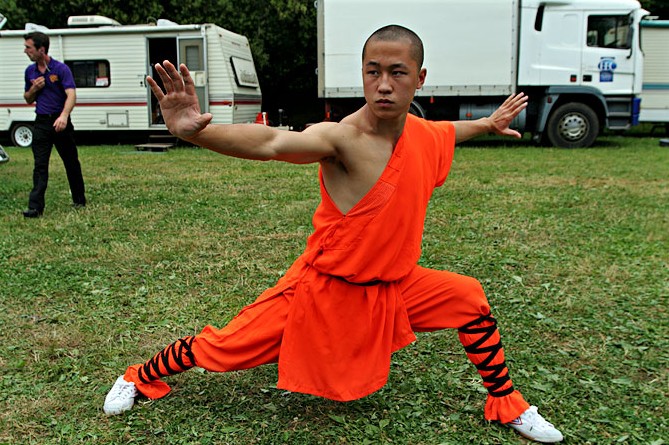
Shaolin
Student
Pontcanna
Fields,
Theosophy Cardiff’s Instant Guide
Theosophical
Movement in Wales
as it separates
into independent
groups that run
do their own show

Llandudno
Pier
One liners and quick explanations
H P Blavatsky is
usually the only
Theosophist that
most people have ever
heard of. Let’s
put that right

Beddgelert, Snowdonia,
The Voice of the Silence Website
An Independent Theosophical Republic
Links to Free Online Theosophy
Study Resources; Courses, Writings,
The main criteria
for the inclusion of
links on this
site is that they have some
relationship
(however tenuous) to Theosophy
and are
lightweight, amusing or entertaining.
Topics include
Quantum Theory and Socks,
Dick Dastardly and Legendary Blues Singers.
A selection of
articles on Reincarnation
Provided in
response to the large
number of
enquiries we receive at
Cardiff
Theosophical Society on this subject

Punch &
Judy Show, Llandudno.
The same family
has run this show since 1860
The Voice of the Silence Website

Rhayader
Mid

Cader Idris, Mid Wales.
A Winter View
We can learn something from these guys
(The universe exists for a while and then sort of
doesn’t)
Outline of the Creation Process
There is no Dead Matter in the Universe
The Divine Spark in Everything
The 10 rungs on the Ladder of Life
The Sevenfold Constitution of Man
Yes, we all operate at 7 levels
(or shouldn’t be)
(You do take some things with you but sadly not your
money)
(The Energy Driving the Universe)
We haven’t always looked like this
H P Blavatsky is usually the only Theosophist most
people have ever heard of. Let’s put that right.
on Dave’s Streetwise Theosophy Boards
This is for everyone, you don’t have to live
in Wales to make good use of this Website
The Old Severn
Bridge at night
If you are
travelling to Wales along the M4, you can cross on the
Old Severn
Bridge (opened 1966) by taking the M48, which will take
you over the
bridge and back on to the M4. You can also cross this
bridge on foot,
horse or bike by using the service roads on
either side.
Don’t try this on the new Severn Bridge

Port
Meirion,
Setting
of the cult 1960s TV series,
The
Prisoner
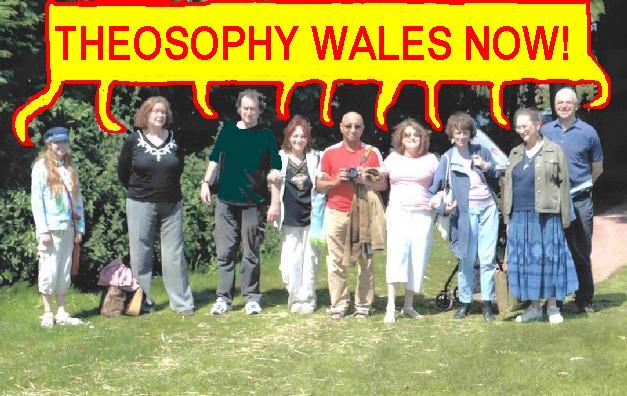
Cardiff
Theosophists on an outing to
Caerleon in Gwent, South Wales.
No Aardvarks were harmed in the
Within the
British Isles, The Adyar Theosophical Society has Groups in;
Bangor*Basingstoke*Billericay*Birmingham*Blackburn*Bolton*Bournemouth
Bradford*Bristol*Camberley*Cardiff*Chester*Conwy*Coventry*Dundee*Edinburgh
Folkstone*Glasgow*Grimsby*Inverness*Isle
of Man*Lancaster*Leeds*Leicester
Letchworth*London*Manchester*Merseyside*Middlesborough*Newcastle
upon Tyne
North
Devon*Northampton*Northern Ireland*Norwich*Nottingham
Perth*Republic of
Ireland*Sidmouth*Southport*Sussex*Swansea*Torbay
Tunbridge
Wells*Wallasey*Warrington*Wembley*Winchester*Worthing
The Spiritual Home of Urban Theosophy
The Earth Base for Evolutionary Theosophy
A B C D EFG H IJ KL M N OP QR S T UV WXYZ
Complete Theosophical Glossary in Plain Text Format
1.22MB

Flint Castle, North Wales.
______________________
Quick Explanations with Links to More Detailed Info
What is Theosophy ? Theosophy Defined (More Detail)
Three Fundamental Propositions Key Concepts of Theosophy
Cosmogenesis
Anthropogenesis
Root Races
Ascended Masters After Death States
The Seven Principles of Man Karma Reincarnation
Helena Petrovna Blavatsky Colonel Henry Steel Olcott
The Start of the Theosophical Society
History of the Theosophical Society
Theosophical Society Presidents
History of the Theosophical Society in Wales
The Three Objectives of the Theosophical Society
Explanation of the Theosophical Society Emblem
The Theosophical Order of Service (TOS)
Glossaries of Theosophical Terms
Quotes from the Writings of
Helena Petrovna Blavatsky
The Secret Doctrine , Volume 2, Page 100
It is only by the
attractive force of the contrasts that the two opposites — Spirit and Matter — can be cemented
together on Earth, and, smelted in the fire of self-conscious experience and suffering, find
themselves wedded in Eternity.
The Secret Doctrine , Volume 2, Page 108
It is the motive, and
the motive alone, which makes any exercise of power become black, malignant, or white,
beneficent Magic. It is impossible to employ spiritual forces if there is the
slightest tinge of selfishness remaining in the operator .... The powers and
forces of animal nature can equally be used by the selfish and revengeful, as
by the unselfish and the all-forgiving; the powers and forces of spirit lend
themselves only to the perfectly pure in heart — and this is Divine Magic.
Isis Unveiled, Volume 1, Page 36
The Secret Doctrine , Volume 3, Page
14
Even ignorance
is better than Head-learning with no Soul-wisdom to illuminate and guide it.
The Voice of the Silence, Page 43
Annotation - The
Path, May, 1888
The Secret
Doctrine , Proem [Volume 1], Page 35
Isis Unveiled,
Volume 1, Page 210
The Secret
Doctrine , Volume 1, Page 134
Oaths will never be binding till each man will fully understand that
humanity is the highest manifestation on earth of the Unseen Supreme Deity, and
each man anincarnation of his God; and when the sense of personal responsibility will be so
Isis Unveiled,
Volume 2, Page 374
It is the motive, and the motive alone, which makes any exercise of power
become black,
malignant, or white, beneficent Magic. It is impossible to employ spiritual
forces if there is the slightest tinge of selfishness remaining in the operator
.... The powers and forces of animal nature can equally be used by the selfish
and revengeful, as by the unselfish and the all-forgiving; the powers and
forces of spirit lend themselves only to the perfectly pure in heart — and this
is Divine Magic.
The Secret
Doctrine , Volume 2, Page 498
Isis Unveiled,
Volume 1, Page 36
From strength to strength, from the beauty and perfection of one plane to
the greater beauty
and perfection of another, with accessions of new glory, of fresh knowledge and
power in each cycle, such is the destiny of every Ego, which thus becomes its own
saviour in each world and incarnation.
The Key to
Theosophy, Page 105
The Secret
Doctrine , Volume 1, Page 69
The mind receives indelible impressions even from chance acquaintance or
persons encountered but
once. As a few seconds' exposure of the sensitized photographic plate is all
that is requisite to preserve indefinitely the image of the sitter, so is it
with the mind.
Isis Unveiled,
Volume 1, Page 311
The Key to Theosophy, Page 228

The Tabernacle, Efail Isaf,
Mid-Glamorganshire,
______________________
An Outstanding
Introduction to Theosophy
By a student of
Katherine Tingley
Elementary Theosophy Who is the Man? Body and Soul
Body, Soul and Spirit Reincarnation Karma

Coleg
Menai Performing Art students
as
‘human statues’ in Bangor High Street.
This idea began in Covent Garden and spread
round Britain.
_____________________
Tekels Park to be Sold to a Developer
Concerns are raised about the fate of
the wildlife as
The Spiritual Retreat, Tekels Park in
Camberley,
Surrey, England is to be sold to a
developer.
Tekels Park is a 50 acre woodland
park, purchased
for the Adyar Theosophical Society in England
in 1929.
In addition to concern about the
park, many are
worried about the future of the Tekels Park
Deer
as they are not a protected species.
____________________
What Theosophy Is From the Absolute to Man
The Formation of a Solar System The Evolution of Life
The Constitution of Man After Death Reincarnation
The Purpose of Life The Planetary Chains
The Result of Theosophical Study
An Outline of Theosophy
Charles Webster Leadbeater
Theosophy - What it is How is it Known? The Method of Observation
General Principles The Three Great Truths The Deity
Advantage Gained from this
Knowledge The Divine Scheme
The Constitution of Man The True Man Reincarnation
The Wider Outlook Death Man’s Past and Future
Cause and Effect What Theosophy does for us
The Unity Underlying all Religions
The Physical
Plane The Astral Plane
Kamaloka The Mental Plane Devachan
The Buddhic and
Nirvanic Planes Reincarnation Karma
The Three Kinds of Karma Collective Karma
The Law of
Sacrifice Man’s Ascent Building a
Cosmos
Wyndham
Arcade, Cardiff
Annotated Edition Published
1885
Preface to the Annotated Edition Preface to the Original Edition
Esoteric Teachers The Constitution of Man The Planetary Chain
The World Periods Devachan Kama Loca
The Human Tide-Wave The Progress of Humanity
Buddha Nirvana The Universe The Doctrine Reviewed

A Juggler in action on Colwyn Bay beach
at the 2009 Welsh Juggling convention
held on the pier.
________________________
Try these if you are looking for a local
Theosophy Group or Centre
UK Listing of Theosophical Groups
Please tell us about your UK Theosophy Group
___________________
into categories
and presented according to relevance of website.
Web Directory
- Add Link - Submit Article - Online Store - Forum

The
The Menai Bridge links the Island of
Anglesey
with the North Wales coast
______________________

General pages
about Wales, Welsh History
and The History
of Theosophy in Wales
Wales is a
Principality within the United Kingdom and has an eastern
border with
England. The land area is just over 8,000 square miles.
Snowdon in North
Wales is the highest mountain at 3,650 feet.
The coastline is
almost 750 miles long. The population of Wales
as at the 2001 census is 2,946,200.
________________
Bangor Conwy
& Swansea Lodges are members
of the Welsh
Regional Association (Formed 1993).
Theosophy Cardiff
separated from the Welsh Regional
Association in
March 2008 and became an independent
body within the Theosophical Movement in March 2010
High Drama & Worldwide Confusion
as Theosophy Cardiff Separates from the
Welsh Regional Association (formed 1993)
Theosophy Cardiff cancels its Affiliation
to the Adyar Based Theosophical Society
